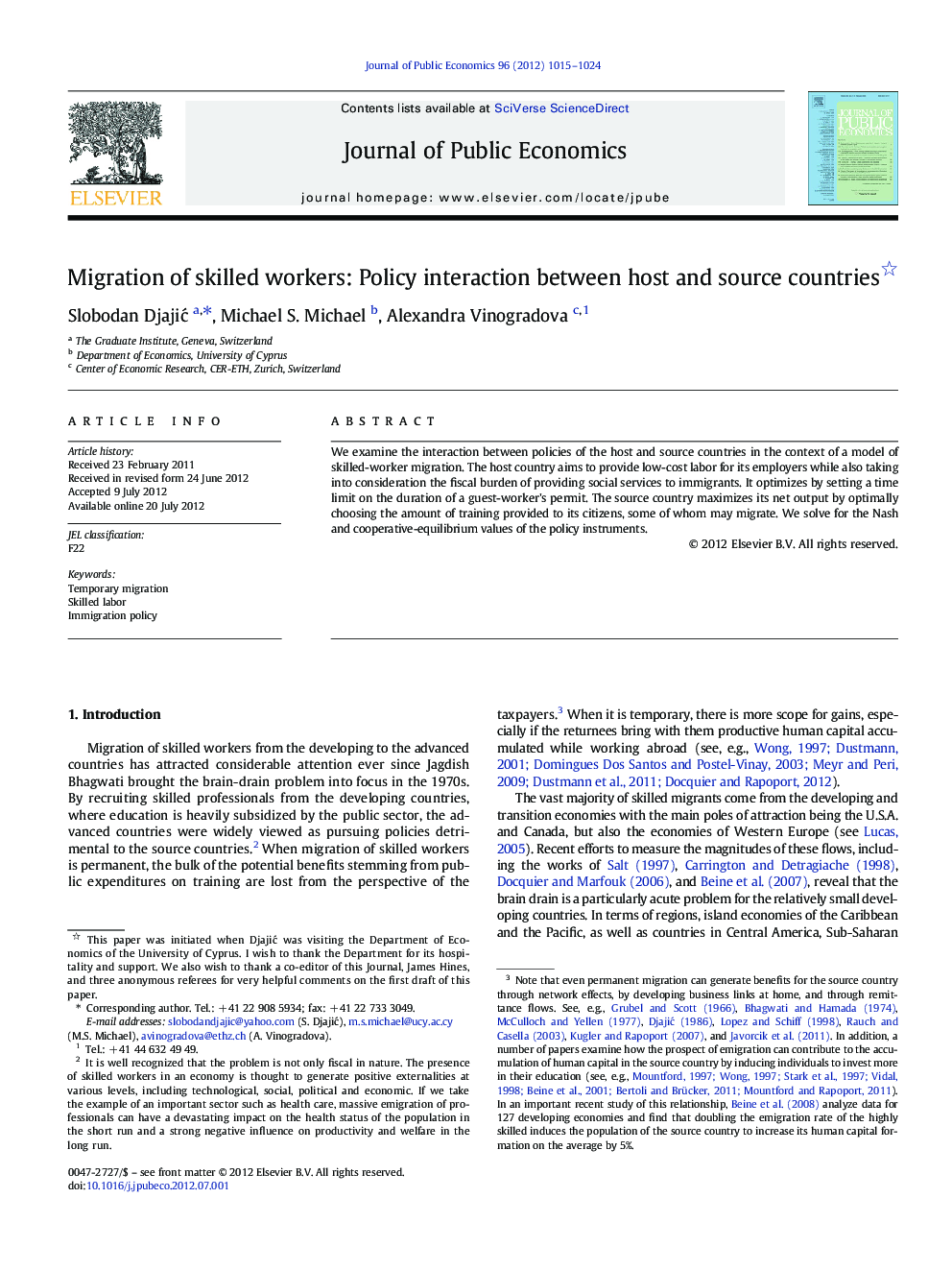| Article ID | Journal | Published Year | Pages | File Type |
|---|---|---|---|---|
| 969176 | Journal of Public Economics | 2012 | 10 Pages |
We examine the interaction between policies of the host and source countries in the context of a model of skilled-worker migration. The host country aims to provide low-cost labor for its employers while also taking into consideration the fiscal burden of providing social services to immigrants. It optimizes by setting a time limit on the duration of a guest-worker's permit. The source country maximizes its net output by optimally choosing the amount of training provided to its citizens, some of whom may migrate. We solve for the Nash and cooperative-equilibrium values of the policy instruments.
► We develop a two-country model of skilled-worker migration with endogenous policies. ► The host sets the duration of work permit and the source provides education. ► Policies in Nash equilibrium are compared with those under joint welfare maximization. ► Equilibrium outcomes depend on: tax, social spending, and other policies of the host. ► Ability of migrants to acquire skills abroad + valuation of those skills at home, etc.
